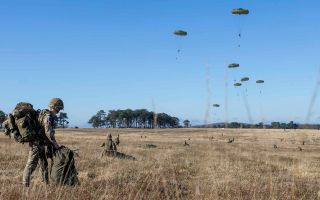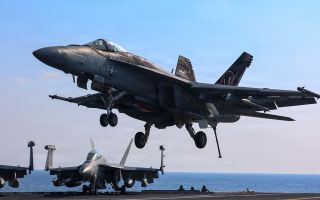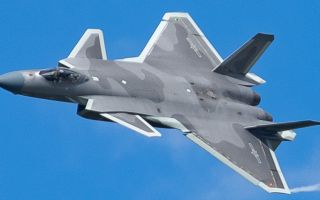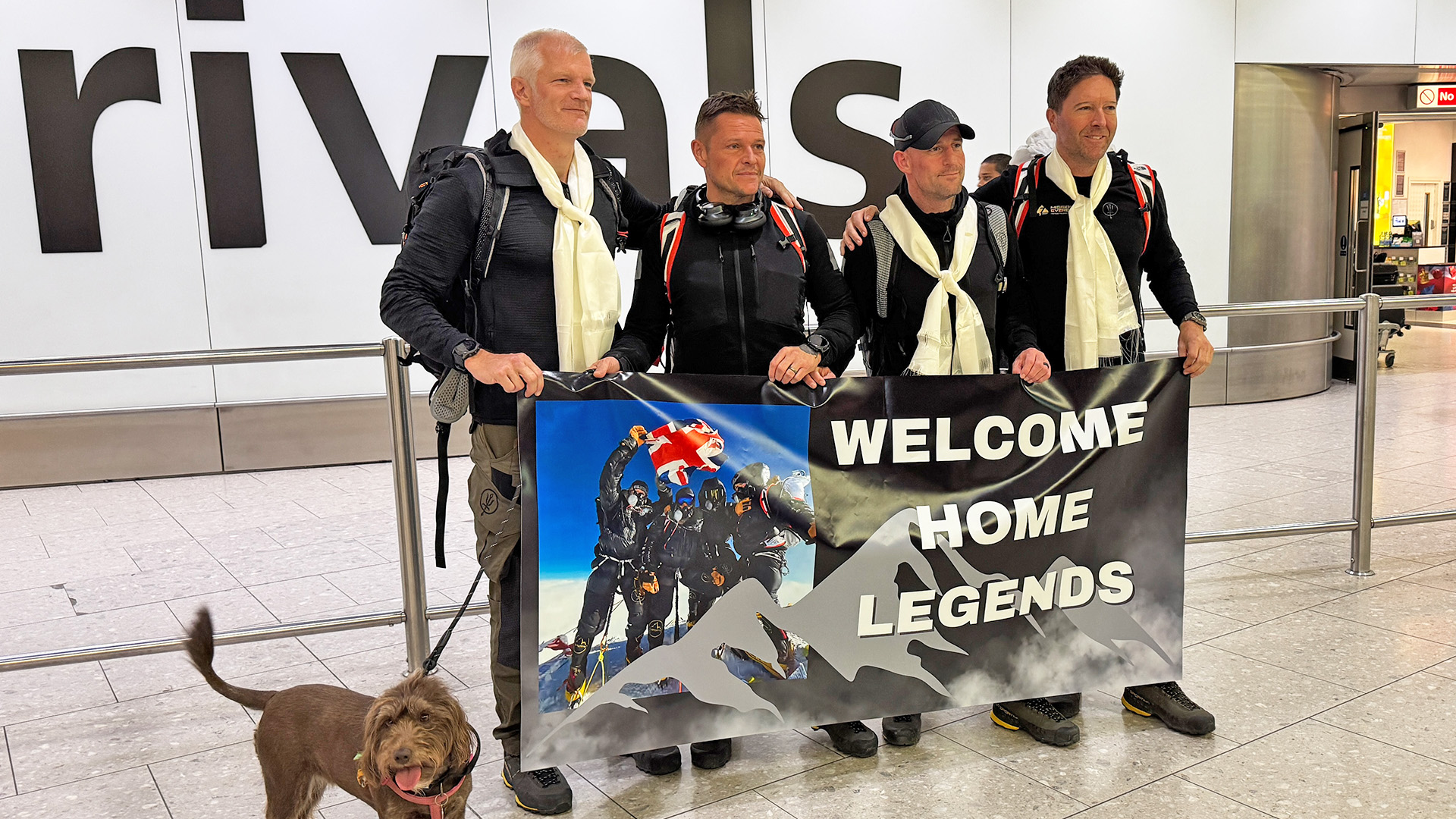
Everest team return to the UK after completing record-breaking round trip in seven days

Veterans Minister Al Carns and three Special Forces veterans have arrived safely back at London's Heathrow airport, after their record-breaking Mount Everest expedition.
The four men, draped in traditional Tibetan scarves, were greeted by family and friends.
They completed the journey from London to the peak of Everest and back in just seven days, setting a new record.
The men were all in good spirits, however, they said the journey to the summit was at times extremely challenging.
They were lucky to escape a sudden avalanche on the Khumbu Icefall as they trekked up from Everest's Base Camp and they also faced high winds, gusting at more than 35mph, on the final section of the climb to the summit.
"We had to make a decision collectively as to whether we continued or not," said team member Major Garth Miller.
"Our Sherpa team, who are without doubt the strongest team on the mountain, were quite keen to turn back.
"We managed to convince them to keep going.
"Just one more hour, the sun will come up and everything will look very different, and that's what happened in the end."
The team was made up of Maj Garth Miller, 51, Veterans Minister and former Royal Marines Colonel Al Carns, 45, Anthony "Staz" Stazicker, 41, who was seen on television's SAS: Who Dares Wins, and Kevin Godlington, 49, one of the founding members of the charity Tickets for Troops.
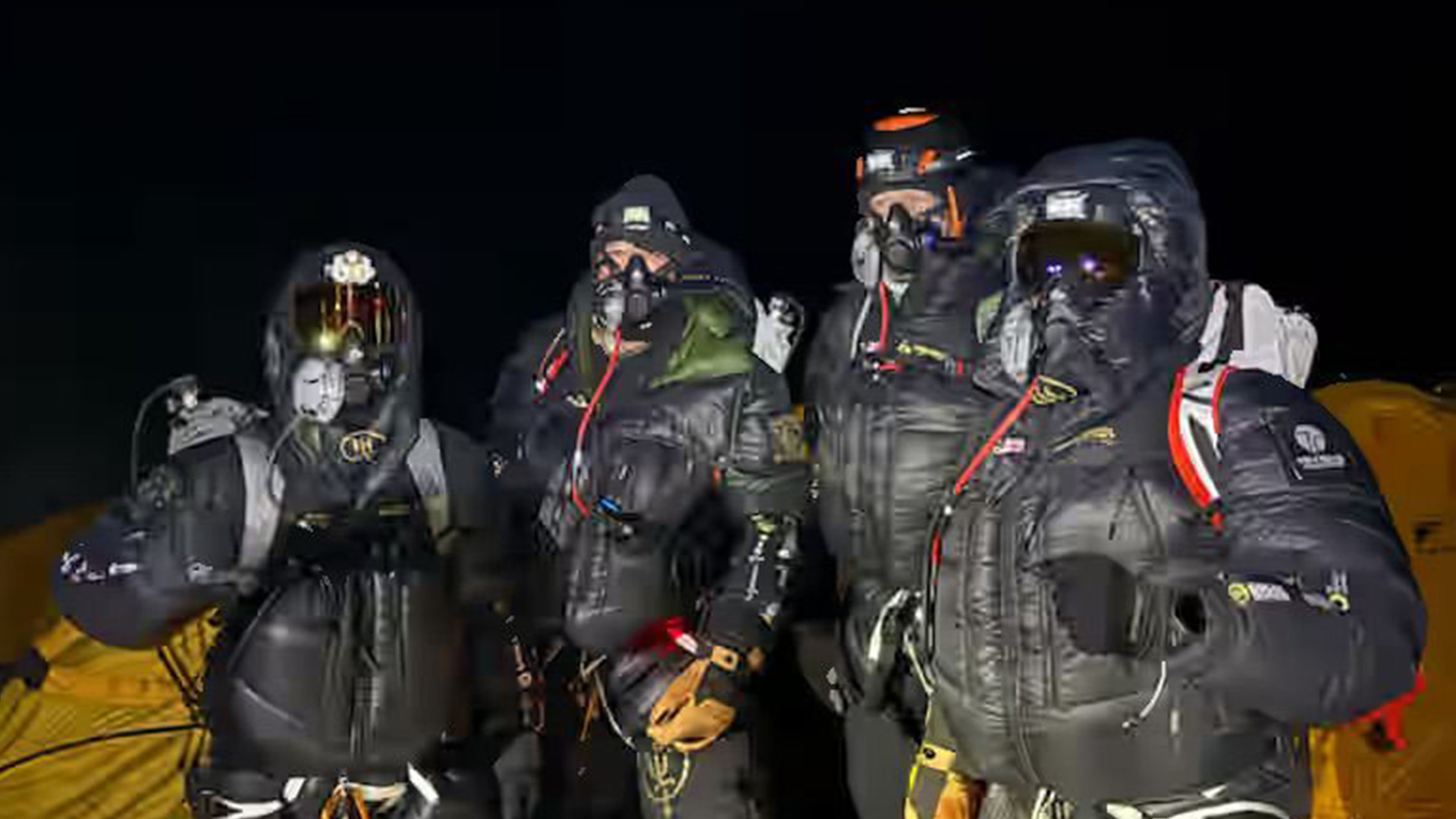
The four veterans waved a Union Flag when they reached the 8,849m peak, the highest in the world.
Remarkably, they summited just days after they left London and were thrilled with their success.
"We climbed Everest, we got to the summit and we've come back," said Mr Carns.
"We said we were going to do it seven days and we've achieved it – actually just slightly faster, nine hours faster, but it's not necessarily about the record.
"This is about championing veterans in a positive way and raising resources for veterans' charities."
It's a journey which normally would take several weeks, allowing climbers to slowly acclimatise to thinning levels of oxygen as they ascend.
Without this process, there is a serious risk of altitude sickness, which can be sudden and fatal.
To cut out this time, the team underwent hypoxic training for several months back at home in the UK.
"The hypoxic training – sleeping in a tent that simulates altitude – creates the same physiological changes in your body as sleeping at real altitude will do," said Maj Miller.
Controversially, the team also inhaled xenon gas ahead of the expedition.
The technique, which is undergoing experimentation, is thought to aid the body in producing red blood cells.
But while it made life easier on the mountain, the training was tough.
"It was particularly torturous," said Mr Carns.
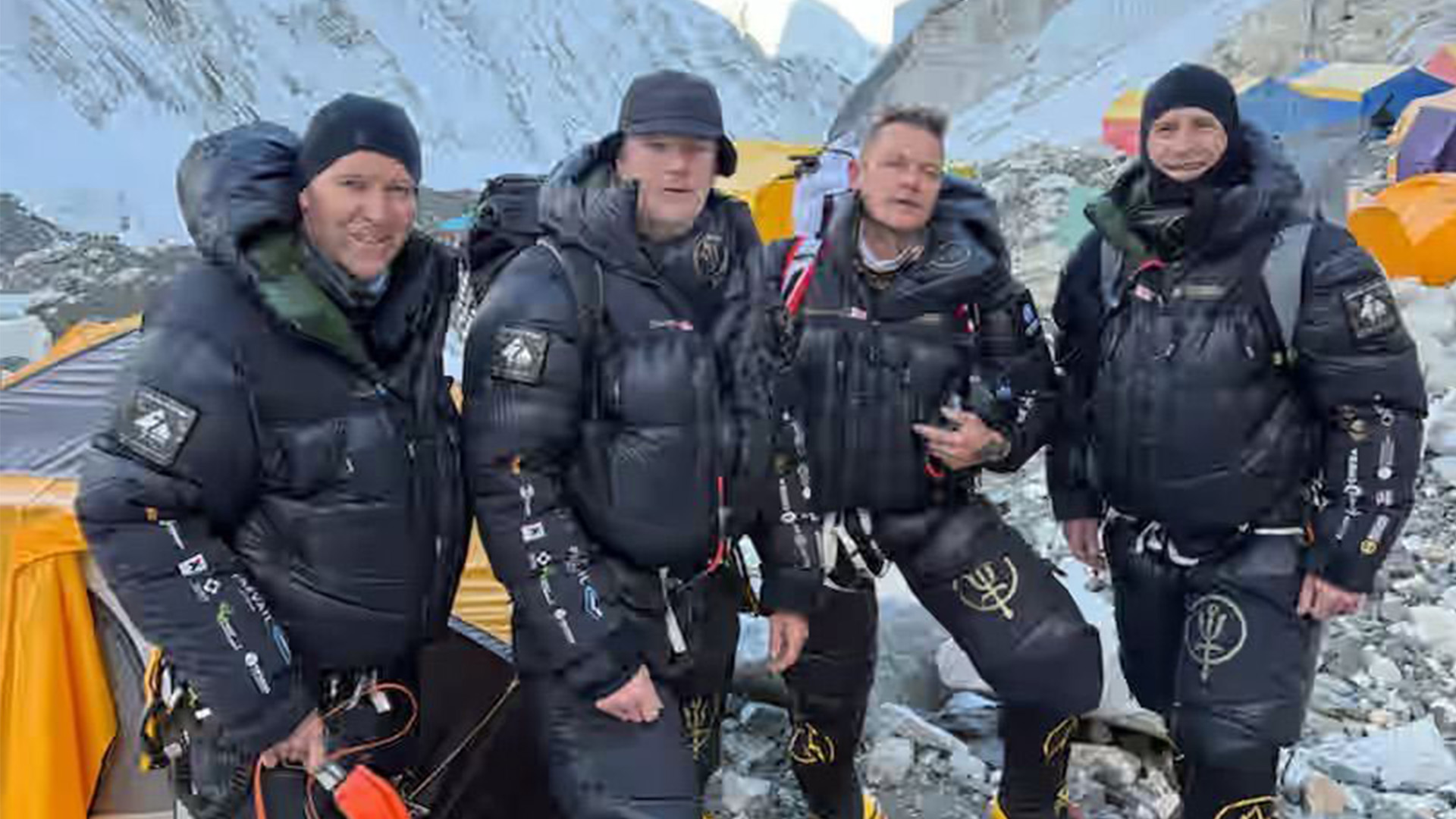
"We [did] 500 hours in tents, which reduced the oxygen, to get us used to the altitude.
"We went to Germany to take [xenon] gas five weeks before going.
"That increases the red blood cell flow, the ability to get oxygen around your body, and we combined all of that with a hard physical training program and nutrition programme."
This technology enabled the team to break a record, which previously stood at 21 days, although Mr Carns also credits the team's military background as key to their success.
The four men have also raised around £75,000 for veterans' charities so far and want to increase that amount.
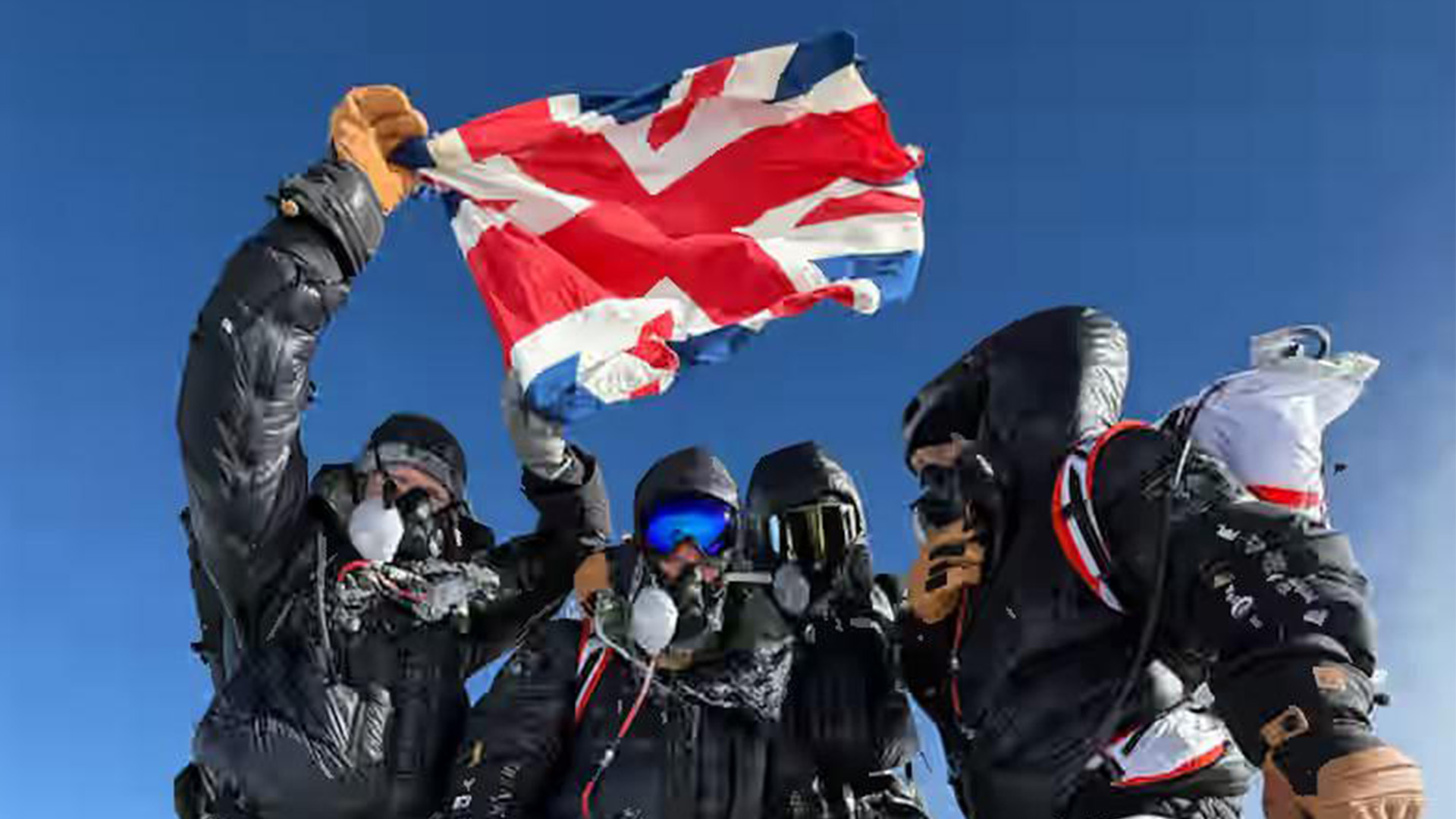
"So the other part of this mission, of course, was to raise £1m for veterans and Armed Forces charities," said Maj Miller.
"We've got some exciting events coming up too, focusing on achieving that goal."
Donations can be made to the Mission Everest team here.



